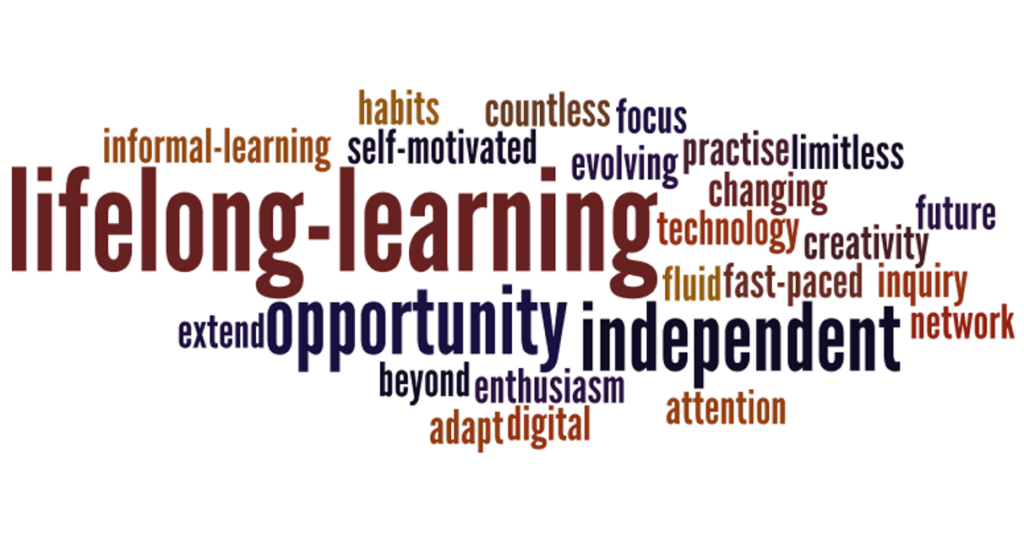Lifelong Learning: Nurturing Curiosity and Success Across a Lifetime

Introduction
In a rapidly changing world driven by technological advancements and evolving industries, the concept of lifelong learning has emerged as a fundamental approach to personal and professional growth. Lifelong learning transcends traditional educational boundaries, emphasizing the continuous acquisition of knowledge, skills, and experiences throughout all stages of life. It empowers individuals to adapt to new challenges, seize opportunities, and lead fulfilling and meaningful lives. In this comprehensive exploration, we delve into the importance of lifelong learning, its benefits, strategies for implementation, and its role in shaping a resilient and dynamic society.
Understanding Lifelong Learning
Lifelong learning refers to the ongoing process of acquiring knowledge, skills, and experiences from formal and informal sources throughout one’s life. It encompasses a wide range of activities, including formal education, self-directed learning, workshops, online courses, professional development, and more. Lifelong learning is rooted in the belief that the pursuit of knowledge is not confined to a specific age or stage but is a continuous journey.
The Importance of Lifelong Learning
- Adaptation to Change: Lifelong learning equips individuals with the ability to adapt to rapidly changing technologies, industries, and societal demands.
- Personal Growth: Engaging in continuous learning fosters personal development, intellectual stimulation, and a sense of fulfillment.
- Career Advancement: Lifelong learning enhances employability, career opportunities, and professional advancement.
- Cognitive Health: Intellectual engagement through learning has been linked to improved cognitive function and a reduced risk of cognitive decline.
- Innovation and Creativity: Exposure to new ideas and perspectives fuels innovation, encouraging individuals to think critically and creatively.
Benefits of Lifelong Learning
- Skill Enhancement: Lifelong learning allows individuals to acquire new skills or refine existing ones, staying relevant in the job market.
- Increased Confidence: Gaining knowledge and expertise boosts self-confidence and empowers individuals to tackle challenges.
- Personal Enrichment: Learning about diverse subjects fosters cultural awareness, empathy, and a broader worldview.
- Networking Opportunities: Lifelong learning provides platforms for connecting with like-minded individuals, experts, and mentors.
Strategies for Implementing Lifelong Learning
- Curiosity and Mindset: Cultivate a curious and open mindset, viewing every experience as an opportunity to learn and grow.
- Set Clear Goals: Define specific learning objectives and create a roadmap for achieving them.
- Diverse Learning Sources: Explore a variety of sources, including books, online courses, workshops, podcasts, and interactive platforms.
- Time Management: Allocate dedicated time for learning, integrating it into your daily or weekly routine.
- Self-Directed Learning: Take ownership of your learning journey, focusing on subjects that align with your interests and goals.
- Reflect and Apply: Regularly reflect on your learning experiences and apply newfound knowledge and skills in real-life contexts.
- Embrace Failure: Embrace the idea that failure is an essential part of learning and growth, encouraging experimentation and resilience.
Lifelong Learning in Different Contexts
- Professional Development: Continuous learning enhances job skills, increases job satisfaction, and fosters career progression.
- Personal Hobbies and Interests: Exploring hobbies and passions contributes to personal satisfaction and a balanced lifestyle.
- Community Engagement: Lifelong learning can occur within local communities through workshops, seminars, and cultural events.
- Aging Gracefully: Engaging in intellectual pursuits has been shown to promote healthy aging and a higher quality of life.
- Social and Civic Participation: Informed citizens contribute to a thriving democracy, making informed decisions and participating in civic activities.
Lifelong Learning’s Role in Society
- Innovation and Progress: Lifelong learners drive innovation and technological advancements that shape industries and societies.
- Social Cohesion: A culture of continuous learning fosters a sense of shared purpose and collective growth within communities.
- Economic Resilience: Lifelong learning contributes to a skilled and adaptable workforce, driving economic competitiveness.
- Cultural Preservation: Learning about one’s own culture and history fosters a sense of identity and preserves heritage.
Conclusion
Lifelong learning is a dynamic and transformative approach that empowers individuals to thrive in an ever-evolving world. By embracing the concept of continuous education, individuals can cultivate a mindset of curiosity, adaptability, and personal growth. Lifelong learning enhances careers, enriches personal lives, and contributes to the well-being of communities and societies at large. As we navigate a complex and rapidly changing landscape, recognizing the importance of lifelong learning and committing to its principles can lead to a more vibrant, resilient, and intellectually engaged world for individuals of all ages.




 The Significance of a Degree: Navigating Education, Career, and Personal Growth
The Significance of a Degree: Navigating Education, Career, and Personal Growth  Steps to Take Before Moving Into a New Construction Home
Steps to Take Before Moving Into a New Construction Home  Renting an Apartment in Singapore: Tips for Expats and Students
Renting an Apartment in Singapore: Tips for Expats and Students  Introducing Broker vs. Executing Broker: What’s the Difference?
Introducing Broker vs. Executing Broker: What’s the Difference? 